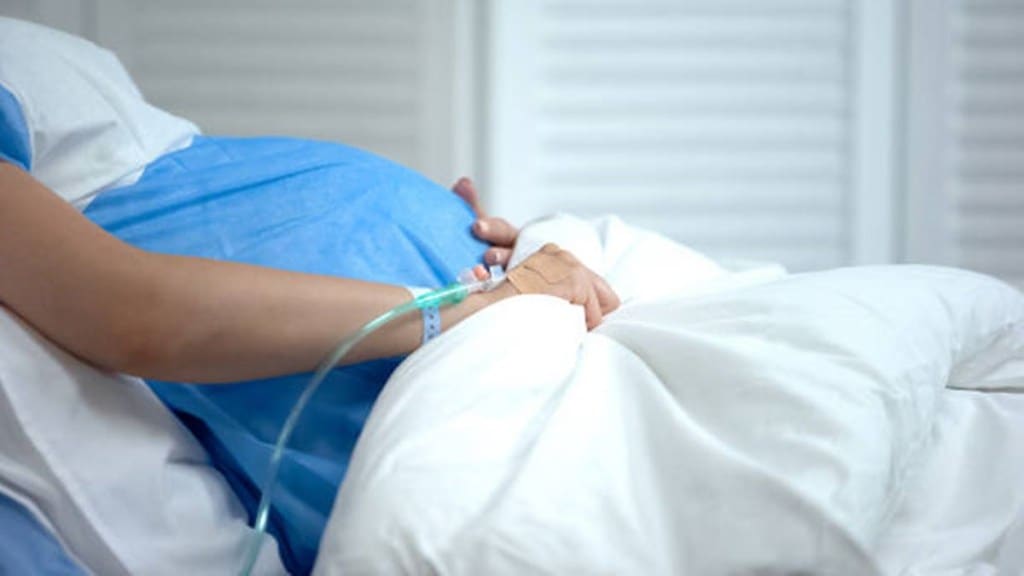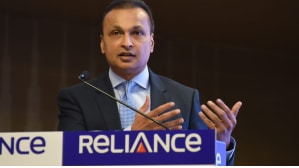When Sareena Sharma was 27, she got some bad news. A blood test showed she had low levels of certain hormones for her age, which meant she would likely go into menopause early, in her late 30s. Sharma was single, but desperately wanted a family So she decided to take action and and freeze her eggs. After two rounds of hormone injections and operations, she now has 12 frozen eggs.
“Every time I see a baby I want to get pregnant, but not now,” said Sharma. “I want to be a bit more stable in my career and financially.”
Sharma is among the increasing number of British women who are taking their fertility into their own hands. Egg freezing cycles have gone up from 2,576 in 2019 to 4,215 in 2021, an increase of 64%, according to figures released by the Human Fertilisation and Embryology Authority (HFEA), a UK regulator.
Fertility clinics are noticing the increased business. Evewell, which has two locations, in Central and West London, performed 45 egg collections during 2020. By the end of April this year they had already done 225. Circle Health Group said its egg-freezing business has tripled in the last 18 months. Harley Street Fertility Clinic said it did as much egg freezing last year than in the five previous years, combined.
It seems destined to become a bigger part of the overall fertility industry, which was worth £320 million ($405 million) in 2021, according to government figures.
A much wider cross-section of women are freezing their eggs — they are younger than ever before, and not always single.
The average age in the UK dropped to 34 years old, the HFEA reported. While the 18-34 and 35-37 age categories have nearly doubled in numbers, there have been “much smaller” increases in ages beyond that, said Clare Ettinghausen, the HFEA’s director of strategy and corporate affairs.
“I was freezing 40-year-old eggs a few years ago,” said Emma Whitney, a laboratory manager at Evewell. “But the average age of an egg-freeze patient is probably around 33 or 34 now.”
Other clinics reported the same: The average patient today at Circle Health Group is now 30 to 32 years old, compared with the late 30s a few years ago. Many come in before their 30th birthday, from 25 onwards. Harley Street Fertility Clinic said its average patient is now 34, down from 38 before the pandemic.
What’s behind the changing demographic is not clearly understood, but some doctors say it’s due to a greater uptake in pre-emptive fertility testing — such as the kind that Sharma had — which can alert some women that their eggs might not be the quality that they’d expected. “Fertility testing is driving women to us,” said Dr. Suvir Venkataraman, general manager at Harley Street Fertility Clinic.
Venkataraman said this can be a good thing — getting women to freeze their eggs when they’re younger makes the treatment more effective. “It’s good when you do it early — you get more eggs,” he said, adding that this can be particularly important for women from ethnic minority groups, whose fertility levels tend to start dropping at a younger age. “You think 35 is the age at which it starts to decline, but it can be 32 or 33 in those [populations],” he said.
It may be that some of these women are turning to egg freezing instead of feeling pressured to have children before they are ready. Certainly, egg freezing is a more attractive proposition than in the past: Its success rates have increased dramatically over recent years. This is largely due to the introduction of vitrification, a recent freezing technique that prevents ice crystals from killing eggs, Venkataraman said, which increases the number that survive thawing from roughly 30% to 90%.
It can also be explained by new payment options. The typical cost of around £4,000 per round of freezing led some women to put off the procedure until they had saved enough. In recent years, however, some clinics have introduced credit schemes that allow women to spread payments over a year or more, with 0% interest.
“When we talk about barriers to freezing eggs [the cost] comes up as significant,” said Venkataraman. “Now there are finance options to help spread the cost, so they can do it when they need it, not when they can afford to do it.”
Clinics have also said that’s it’s no longer just single women coming to them: Women in happy, settled relationships are also choosing to freeze their eggs.
“We’ve had a very big increase in people requesting it in relationships,” said Whitney. “We’re in such a financially difficult position, so they want to delay having a family until they’re in a better financial state.”
There has also been recent loosening of the laws around the treatment. In 2021, the government announced plans to increase the 10-year cap on the storage of frozen eggs, sperm and embryos to 55 years, with the new rule going into effect in July of last year. This is a dramatic improvement for many women, who are now able to use eggs of prime fertility for longer. “I think in the last three years [egg freezing] has become more common because the 10 year rule has been changed,” said Sophia Money-Coutts, an author who froze her eggs in 2020 and made a podcast series about the experience called Freezing Time.
Money-Coutts said that there’s a troubling reason why fertility clinics are so busy — social media ads for egg freezing that are targeted to women in their late 20s and early 30s. “It’s being more ruthlessly advertised on social media,” she said. “I’m quite uncomfortable about that… it’s not as if women approaching 30 don’t already have enough to worry about.”
It’s important to point out that despite recent improvements, egg freezing is still not a sure-fire way to have a baby. Venkataraman laid out the odds: If you freeze 10 eggs, on average nine will survive thawing, six or seven will be successfully fertilized, two or three will grow into embryos, one will end up being healthy enough to develop, which will then have a 50-50 chance of resulting in a live birth.
Clinics differ widely in how many eggs they advise women to freeze to boost the chances of having a healthy baby — from as few as six to his clinic’s 30.
Women are therefore advised that egg freezing should not be relied on 100%, but rather seen as a fallback.
Sharma is going back for more freezing this year, to hopefully add another few eggs to her current 12.
“The doctors said I would probably only need one more round,” she said. “I still want the whole falling in love, getting married and having babies as my plan A, but I’m very realistic too.”








